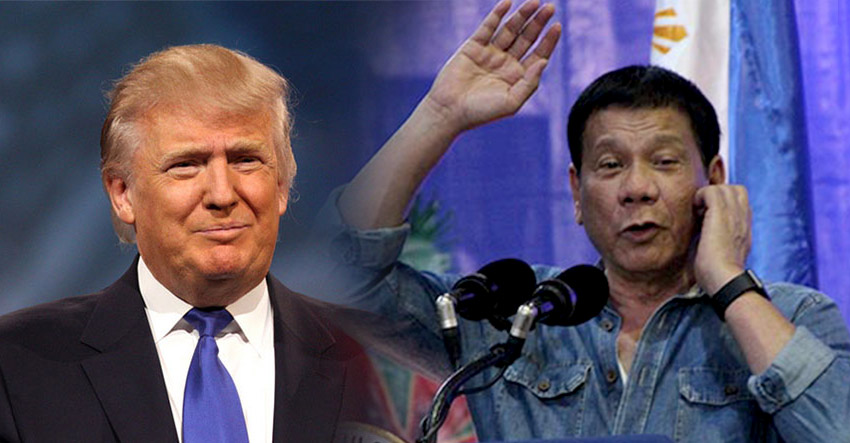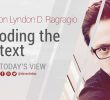
Clenched fist or the raising of hand wherein your fingers are tightly enclosed altogether, has been a global symbol of mobilization and resistance. We have been witnessing this symbol in political protests since time immemorial for it aptly signifies the protesters’ assertive call for action.
The symbol has been used in protests such as condemning military aggression and government corruption like the US bombing of Vietnam in the 1950-60s and Philippine People Power Uprising in 1986.
But how do we make sense of this symbol when “popular” leaders like US President Donald J. Trump and Philippine President Rodrigo R. Duterte use the very same symbol to communicate oneness with the public?
Who are they mobilizing? And what are they trying to resist?
Trump in his inauguration address flaunted his “America first” rhetoric followed by lines like “We will bring back our jobs, we will bring back our borders, we will bring back our wealth, we will bring back our dreams.”
Here and in various press conferences, he was seen doing clenched fist remarks to greet or bid farewell to the audience.
He seems to act as someone who can mobilize a “movement” that instills a narrowed “pro-Trump is equal to pro-American” formula.
Note that he is indeed serious about arousing a movement of his regime since his campaign period and when part of his inauguration text reads “You came by the tens of millions to become part of a historic movement – the likes of which the world has never seen before.
At the center of this movement is a crucial conviction – that a nation exists to serve its citizens.”
He clearly is attempting to underscore the failure of recent regimes to mobilize the public hence a movement, something that he thinks is strategic for him to stay in power given his lack of official training in political bureaucracy.
But let us be clear with the last line. In spite, his lack of official presence in the hallmark of US politics, note that he has been a capitalist and media mogul in the US where he undoubtedly drew his popularity.
I am convinced that in some situations including his, an upbringing in a corporate capitalist system is nowhere distinguishable from a training in political bureaucracy. Thus, his lack of official political experience in the official political arena is out of the question considering his long time influence in the business industry.
Before, it was pure and solid business interest. But now, we see a hybridity of corporate and political power bestowed upon one persona who publicly overrates a movement of and for his kind.
And the obvious victim in this scenario: the vulnerable and marginalized groups and individuals who are not only unconvinced by his rhetoric but also those who are trying to resist the very foundation of his regime – a capitalist, perverse and obnoxious one.
Duterte has his fair share of clenched fist-ing. But this too is often perplexing. In his inauguration, he maintained these lines “My adherence to due process and the rule of law is uncompromising… Love of country, the subordination of personal interests to the common good, concern, and care for the helpless and the impoverished – these are among the lost and faded values that we seek to recover and revitalize as we commence our journey towards a better Philippines.”
To this day, he may be a “popular” leader but not a socialist one, contrary to what he professed to be during the 2016 presidential campaign. Impunity is still a tolerated practice under his regime.
The attacks in forms of harassment/threat/killing against the press and those critical of his government, for one, remain inevitable without serious and convincing resolve from the powers-that-be. The counter-insurgency operations of the military and paramilitary forces in rural and indigenous communities are still taking place.
Hundreds of political prisoners accused because of their political belief are still incarcerated. And lest we forget, the innocent lives deprived of their innate right to life are not mere “collateral damage” in his declared war on illegal drugs.
Duterte may have instigated a movement of his followers too but what is more troubling here is their hoaxed identity that could draw more confidence to attack political dissidents, offline and online.
It appears futile to compare Trump and Duterte on the basis of their political rhetoric simply because each of them belongs to an entirely different political and business spectrum. But the way they do clench fist-ing distorts the way the public is mobilized towards a political end.
Their clenched fists simply mobilize a movement of their own individual regime. But the reason for their apparent resistance against someone or something remains to be seen. What should worry us in the nearer future is that bureaucrats like popular leaders may not only distort the symbolic use of clench fist but moreover, the society’s values like nationalism and democracy.






